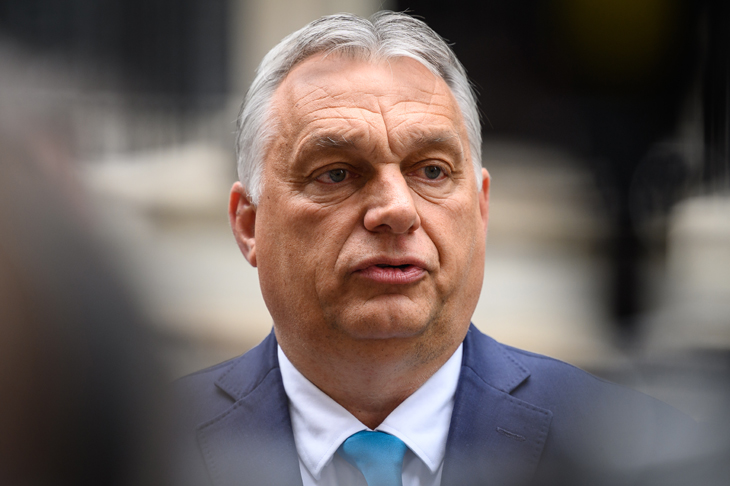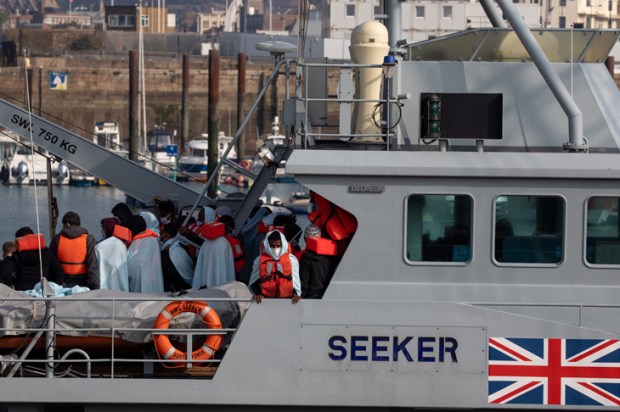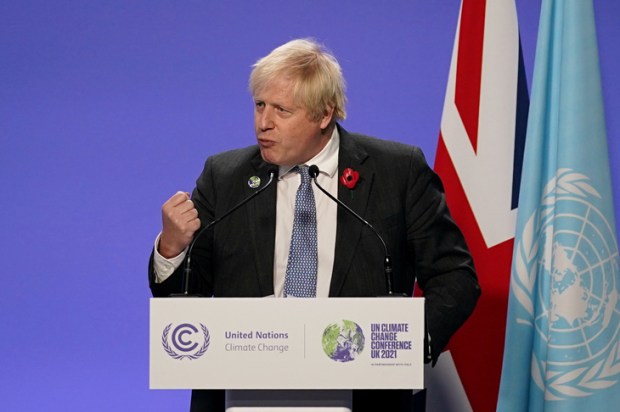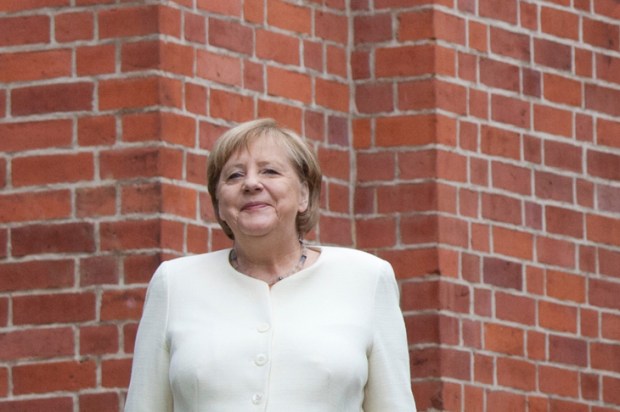Europe’s rightward drift
Two of the great issues which animated the woke EU establishment until recently were hatred of Donald Trump and Brexit. Trump’s departure has left a sense of bereavement. Contempt for Britain over Brexit lingers in middle-finger gestures like Brussels’ bloody-minded policing of the Northern Ireland protocol – Boris Johnson’s inept agreement to keep the border with the Irish Republic open by having the province maintain EU import rules. Which means you’re buggered if you want a British banger in Belfast.
Yet post-Brexit Britain no longer quite fits the bill as a hate target for Europe’s progressives. You’d think that, say, Xi Jinping might fit that role. But their preferred bogeyman is Hungary’s Viktor Orbán, who ticks the boxes of being pro-family, pro-strong borders and a Christian European, so fair game for demonisation by the bien pensants. The lightning rod for the latest round of Euro-attacks on him is his legislation banning the depiction or promotion to children of homosexuality or transgenderism. The Brussels establishment, now an enforcer of all the latest woke orthodoxies, asserts that these measures – which most ordinary Europeans would probably support – make Orbán hostile to ‘EU values’. Dutch Prime Minister Mark Rutte has hysterically threatened to bring Hungary, a fellow democracy and Nato member, ‘to its knees’ over the issue and says it must repeal the law or leave the EU.
The threat is empty. Orbán isn’t isolated in the EU over the issue – most of the other ex-communist member-states have refused to join the pile-on. So the strategy of the Orbán haters is to ensure he loses the elections next April. That involves mixed messages, given that they routinely accuse him of being an autocrat and even a dictator – who tend famously not to allow free elections. In the fifteen years Orbán has been in power, the economy has performed strongly and probably most Hungarians other than the younger professionals in the urban sourdough belts like his conservative policies. Still, the leftist opposition won Budapest in local elections in 2019 and hopes to defeat Orbán through electoral alliance with Jobbik (the ‘rightists’), a small hard-right party infamous for its anti-semitic record – but now allegedly a party of born-again moderates. Orbán will have plenty of opportunities to dent the credibility of this improbable coalition, likely to be led by Budapest’s mayor, Gergély Karácsony, an uncharismatic left-wing former public opinion researcher and academic. Still, the opposition has a chance if the EU convinces enough Hungarians that their EU membership’s in jeopardy unless Orbán goes.
But by early next year Europe’s establishment will probably have bigger things to worry about than Hungary. That’s because the political momentum in all the big EU member-states other than Germany – France, Italy, Spain – favours the right.
France’s recently concluded local elections have reinforced the impression that political chameleon Emmanuel Macron is in trouble as he approaches the presidential elections in April next year. His party won just 7 per cent of the vote. The reasons aren’t hard to find: dismal economic fundamentals; the gilets jaunes protests sparked by climate-motivated fuel price increases; widespread perceptions of out-of-control immigration, security and crime; mismanagement of the Covid crisis; and Macron’s out-of-touch EU obsession.
Marine Le Pen, leader of the right-wing National Rally, formerly National Front, did worse than expected, winning only 20 per cent of the vote and none of France’s thirteen regions. She’s widely seen as incompetent, even by her supporters; the result probably also reflects her attempts to moderate the party’s image driving previous supporters away. Its dodgy links with Putin also don’t help. Polls for the presidential race show Macron and Le Pen level at around 26 per cent. Macron can still win if he again faces her in a second round. But the mainstream right, the Republicans, knocked out of the 2017 race by a corruption scandal, won the local elections with 38 per cent of the vote. Though their rising star Xavier Bertrand is only at 18 per cent in polls for the presidential race, support for the party will probably rise, reflecting the national mood for a rightward shift. The Republicans will make tough-sounding immigration and law and order commitments competitive with Le Pen. France being France, voters also dream of a rerun of Les Trente Glorieuses, the dirigiste high growth and rising living standards of 1945-75. If the Republicans can convicingly offer promises on all this, overcome internal divisions and agree on a presidential candidate, they could develop momentum.
If the national mood in France is moving rightwards, that’s even more the case in Italy. The next elections aren’t due until mid-2023, but Davos Man Prime Minister Mario Draghi could resign early next year (to become president), triggering early elections.Polls suggest the conservative alliance of Giorgia Meloni’s Brothers of Italy, Matteo Salvini’s Lega and Silvio Berlusconi’s Forza Italia would win. The current leftist government has presided over continued economic stagnation and has let the people-smugglers resume business. So far this year, nearly 20,000 have arrived, three times the number for the same period last year and ten times the same period in 2019. Their key policy would be robust measures to stop the boats. With either Meloni or Salvini as a possible prime minister, such a government would shake up the EU as much as Le Pen reaching the Élysée Palace.
The fragile leftist government in Spain faces similar rightward momentum as in France and Italy. In May, the conservative People’s party surged to win the Madrid region elections, securing a majority with the help of the increasingly popular new anti-immigration party to its right, Vox.
The formation of leftish governments in France, Italy and Spain over 2017-19 was hailed by many in Europe as the progressive response to Brexit and Donald Trump. Yet the pendulum since has consistently been swinging rightwards – in Greece, Slovenia and Denmark, whose Prime Minister Mette Frederiksen has Europe’s toughest anti-immigration policies, despite calling herself a Social Democrat. The mood shows every sign of continuing.
Got something to add? Join the discussion and comment below.
Get 10 issues for just $10
Subscribe to The Spectator Australia today for the next 10 magazine issues, plus full online access, for just $10.
Mark Higgie on Twitter @markhiggie1
You might disagree with half of it, but you’ll enjoy reading all of it. Try your first month for free, then just $2 a week for the remainder of your first year.














Comments
Don't miss out
Join the conversation with other Spectator Australia readers. Subscribe to leave a comment.
SUBSCRIBEAlready a subscriber? Log in